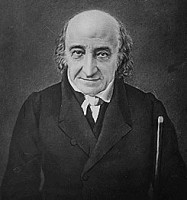Today’s NYT piece by Brad Stone about Google (Sure, It’s Big. But Is That Bad?) offers a superb example of how to use the rhetorical question in an article headlined to suggest that you might actually be about to write a thoughtful, balanced piece—while actually writing a piece that, while thoughtful and interesting, offers little more than token resistance to your own preconceived judgments. But perhaps I’m being unfair: Perhaps Stone’s editors removed “YES! YES! A THOUSAND TIMES, YES!” from the headline for brevity’s sake?
Anyway, despite its one-sidedness, the piece is fascinating, offering a well-researched summary of the growing cacophony of cries for regulatory intervention against Google, and also a suggestion of where they might lead in crafting a broader regulatory regime for online services beyond just Google. In short, the crusade against Google and the crusade for net neutrality (in which Google has, IMHO unwisely been a major player) are together leading us down in intellectual slippery slope that, as Adam and I have suggested, will result in “High-Tech Mutually Assured Destruction” and the death of Real Internet Freedom.
Ironically, this push for increased government meddling—a veritable “New Deal 2.0″—is all justified by the need to “protect freedom.” But it would hardly be the first time that this had happened. As the great defender of liberty Garet Garrett said of the New Deal 1.0 in his 1938 essay The Revolution Was:
There are those who still think they are holding the pass against a revolution that may be coming up the road. But they are gazing in the wrong direction. The revolution is behind them. It went by in the Night of Depression, singing songs to freedom.
That theme lives on in the works of those like antitrust warrior Gary Reback, an anti-Google stalwart whose book Free the Market: Why Only Government Can Keep the Marketplace Competitive Adam savaged in his review last year. Reback argues:
Google is the “arbiter of every single thing on the Web, and it favors its properties over everyone else’s,” said Mr. Reback, sitting in a Washington cafe with the couple. “What it wants to do is control Internet traffic. Anything that undermines its ability to do that is threatening.”
Move over, ISPs! Search engines are the real threat! Somehow, I feel fairly confident in predicting that this will be among the chief implications of Tim Wu’s new book, The Master Switch: The Rise and Fall of Information Empires, to be released in November, which his publisher summarizes as follows: Continue reading →



 The Technology Liberation Front is the tech policy blog dedicated to keeping politicians' hands off the 'net and everything else related to technology.
The Technology Liberation Front is the tech policy blog dedicated to keeping politicians' hands off the 'net and everything else related to technology.